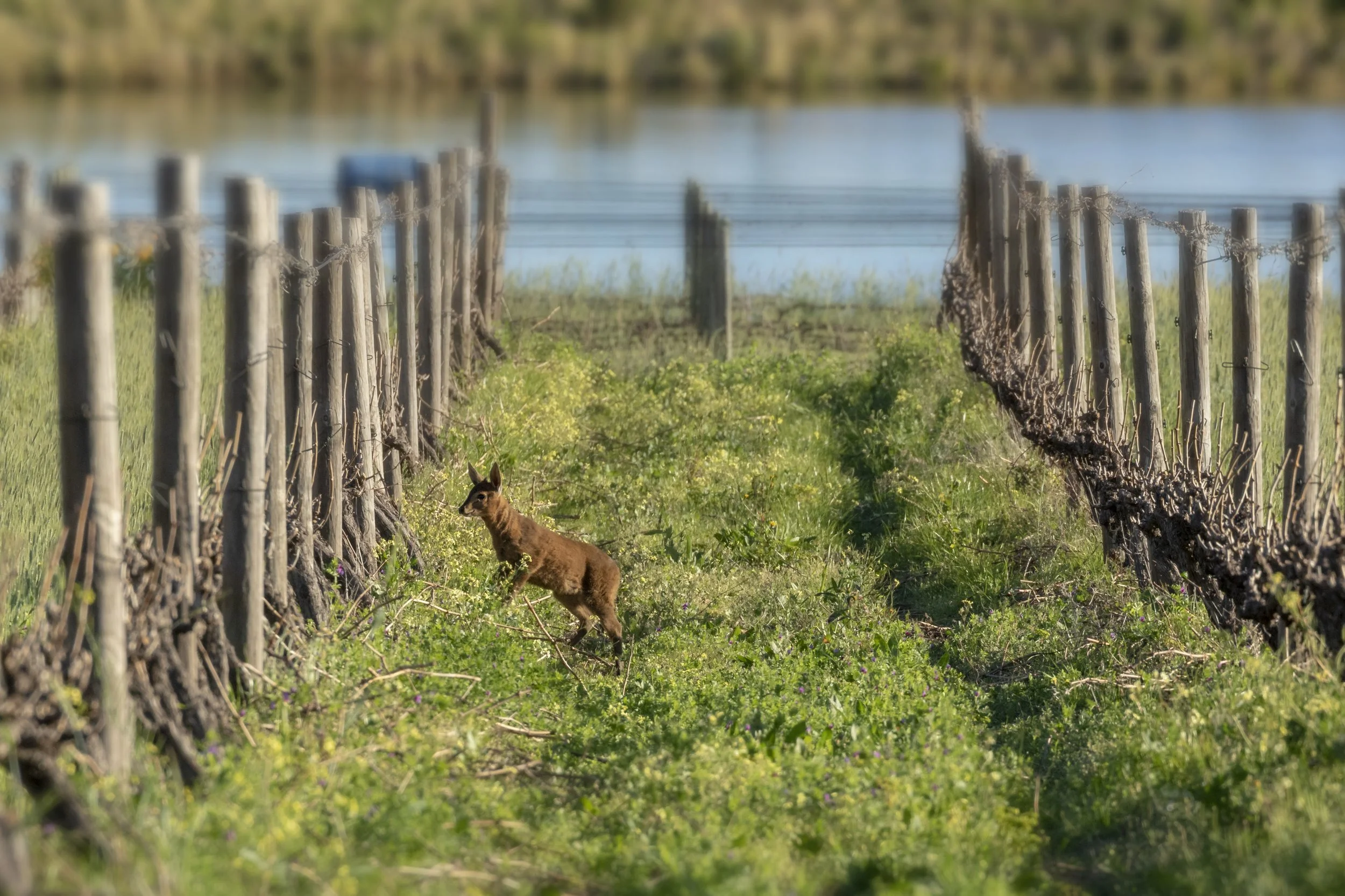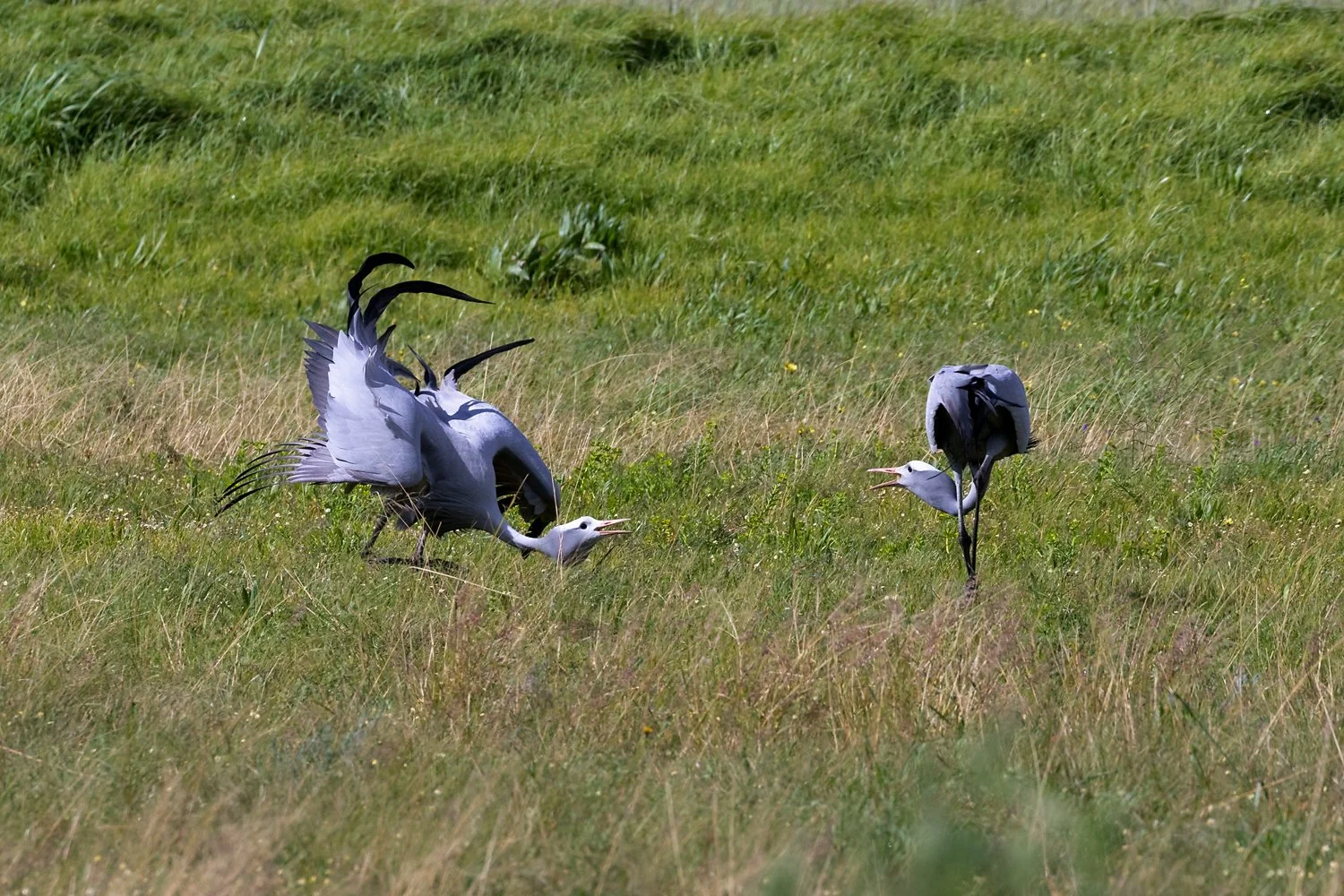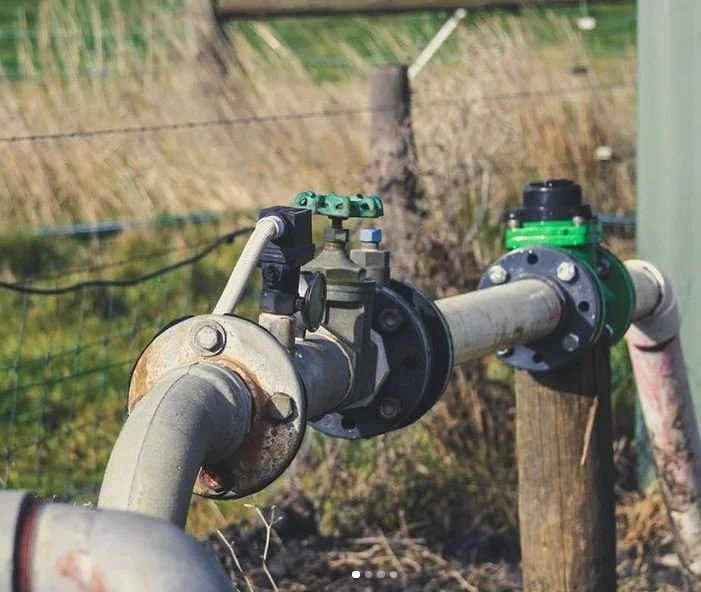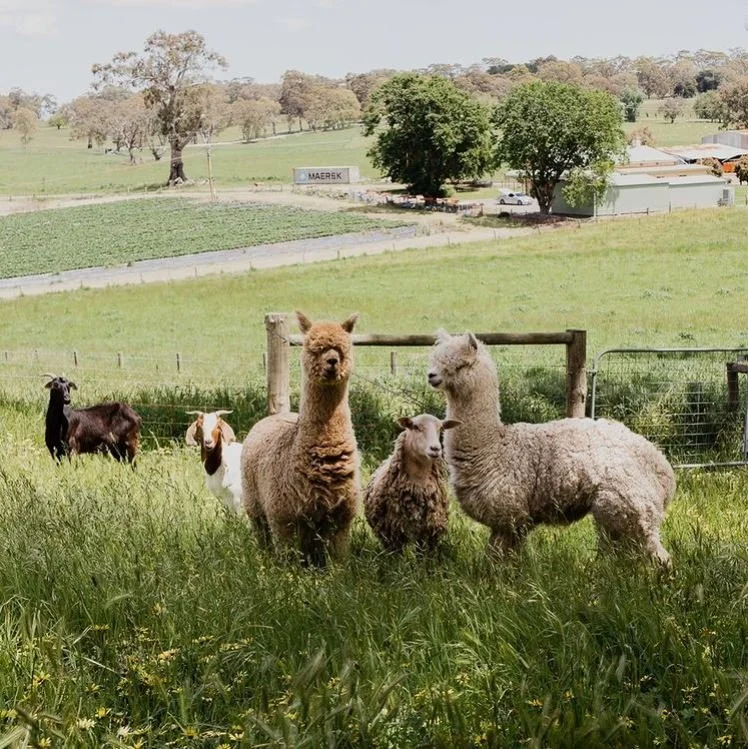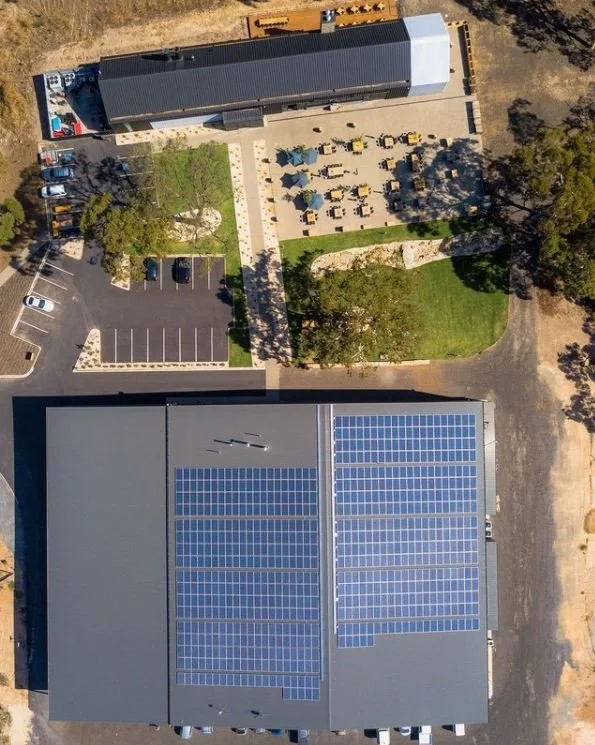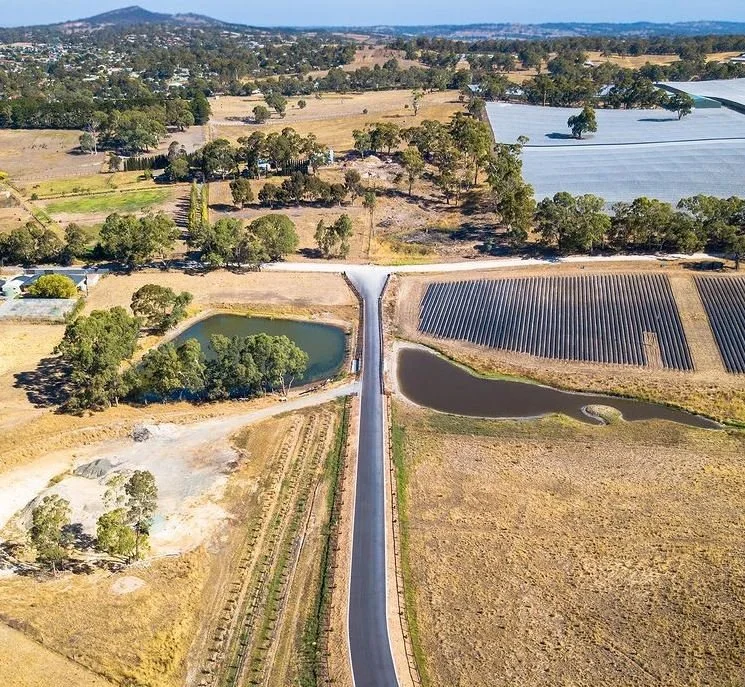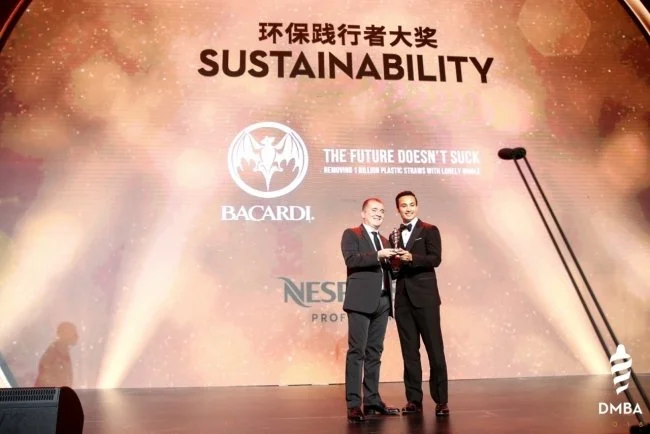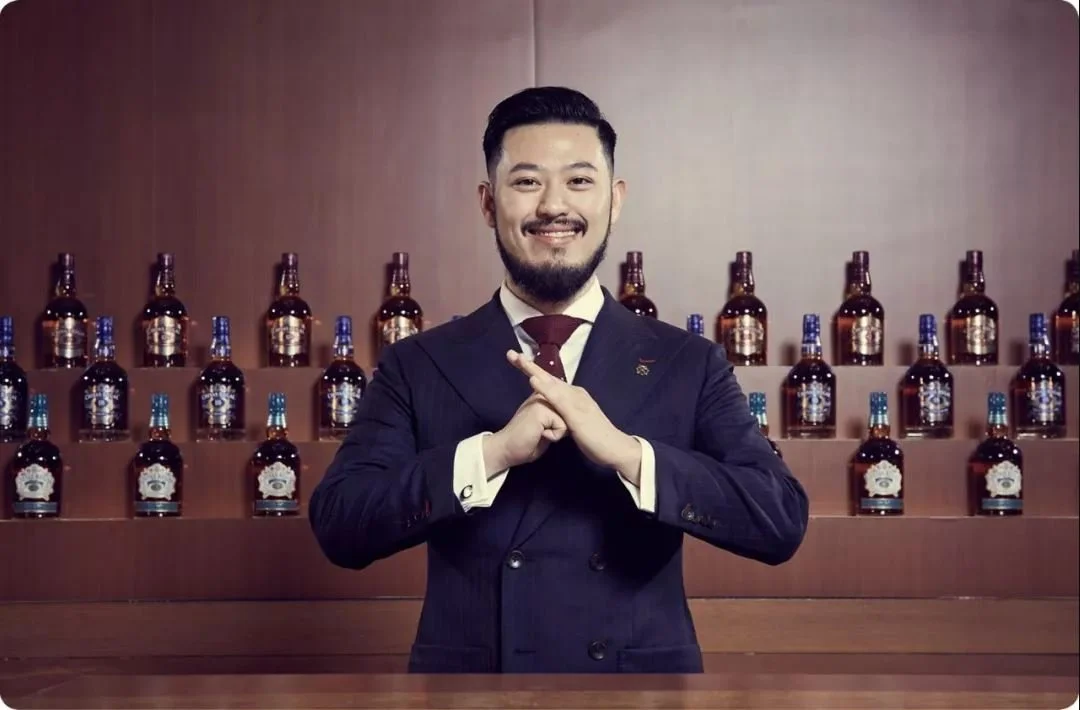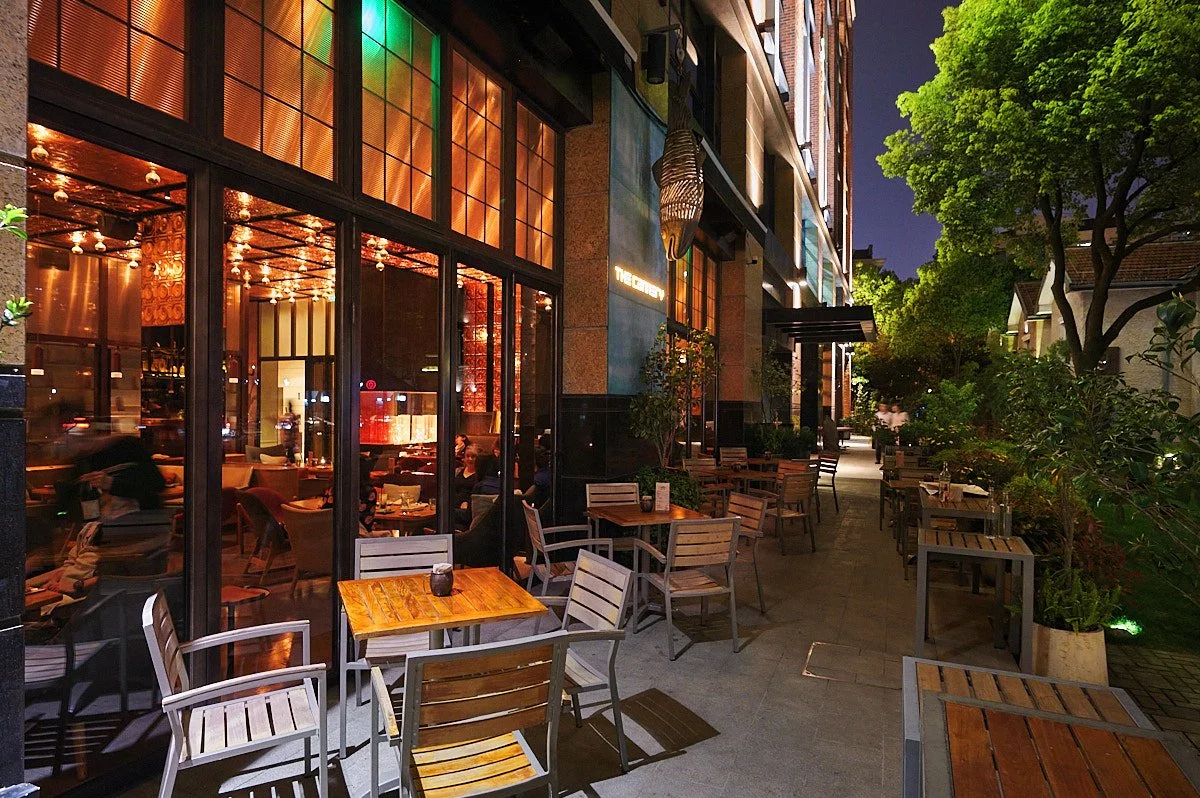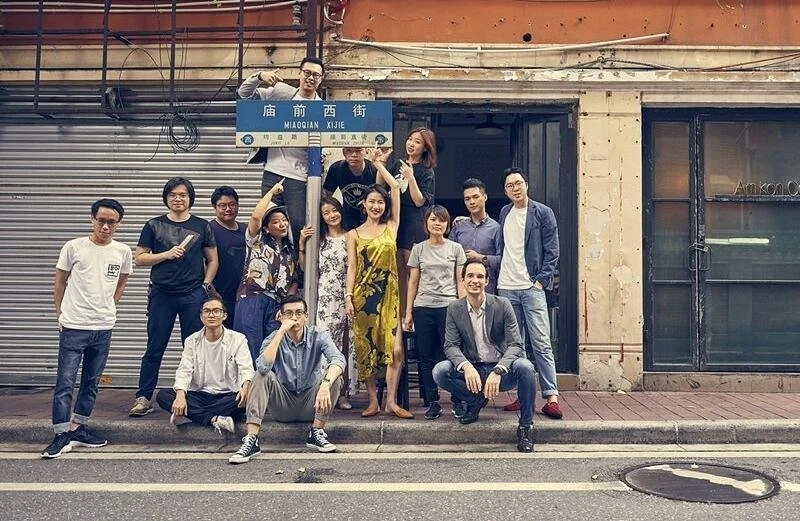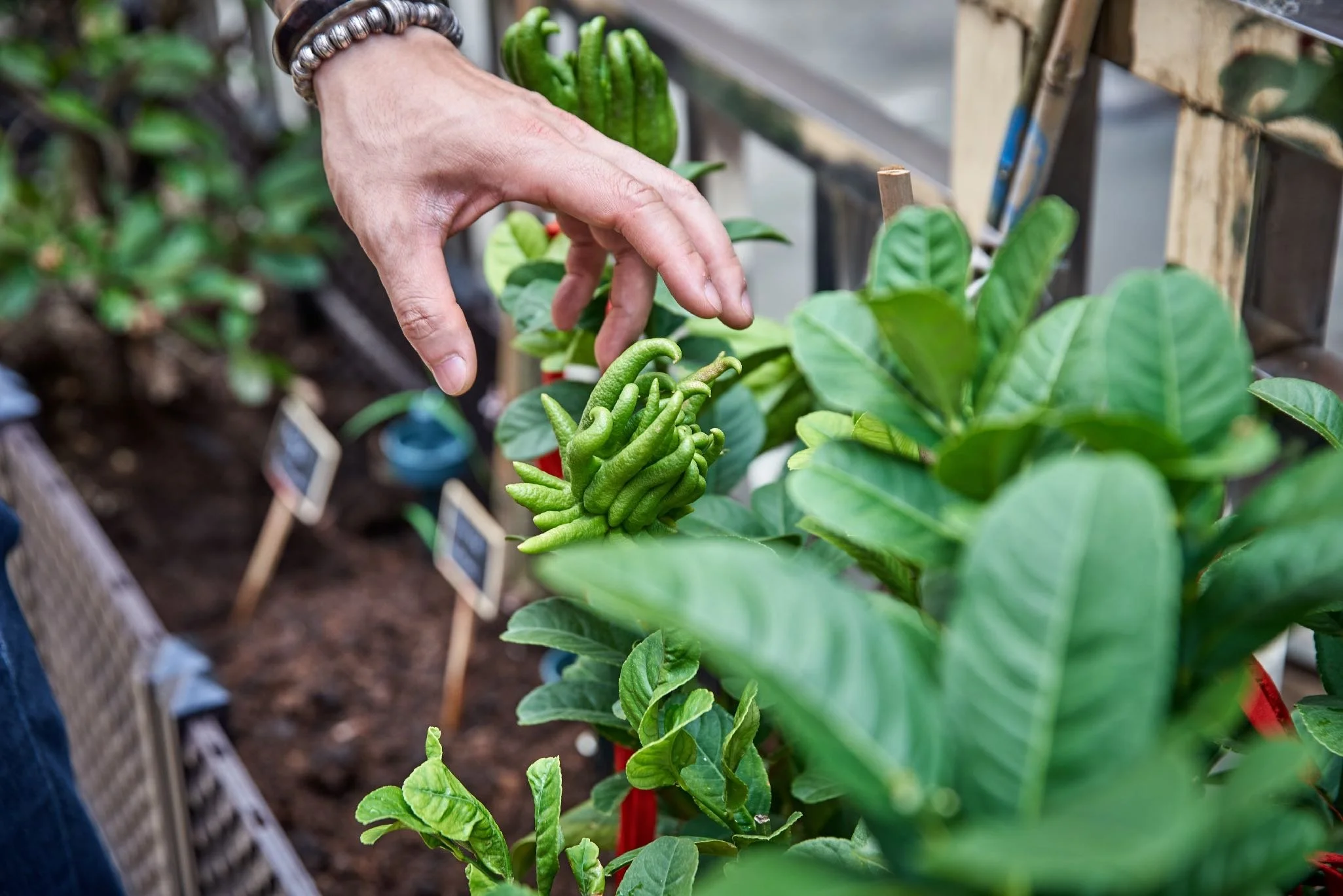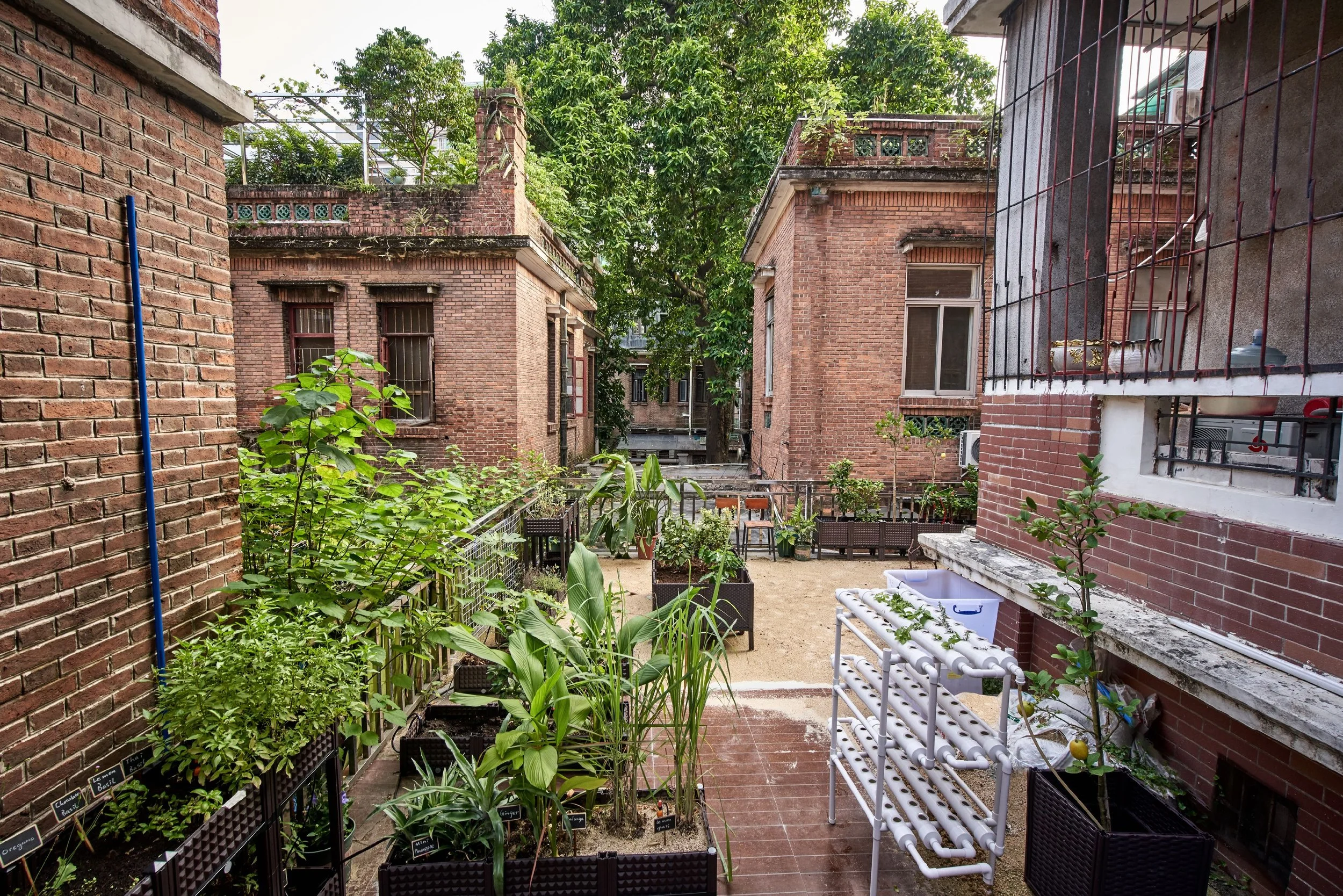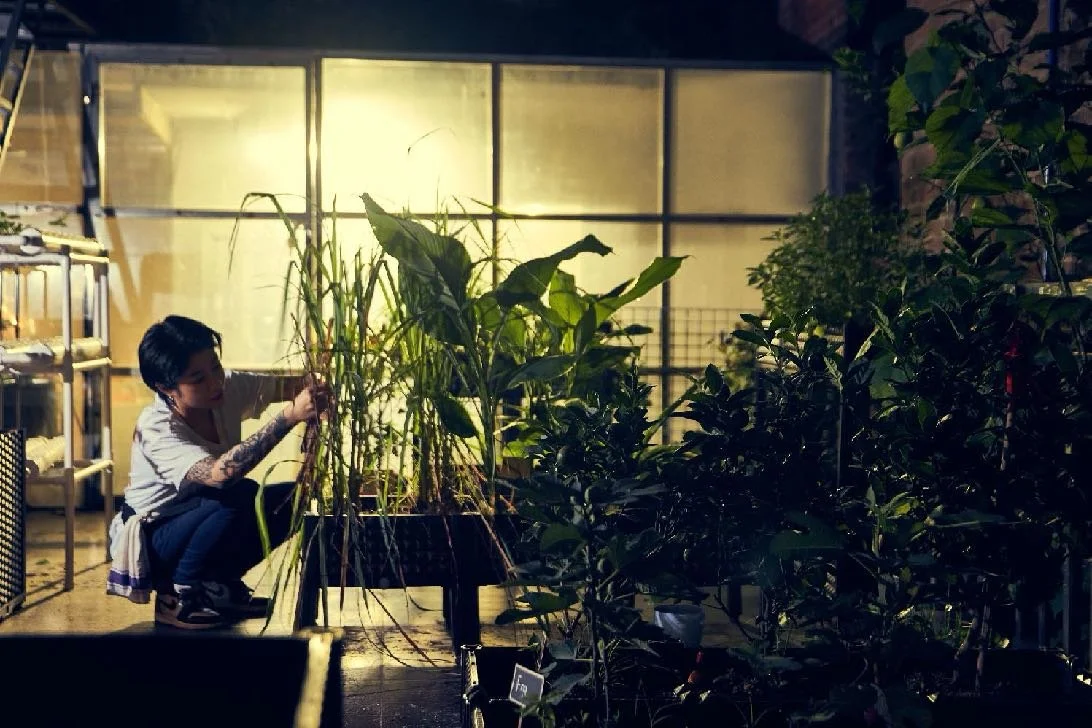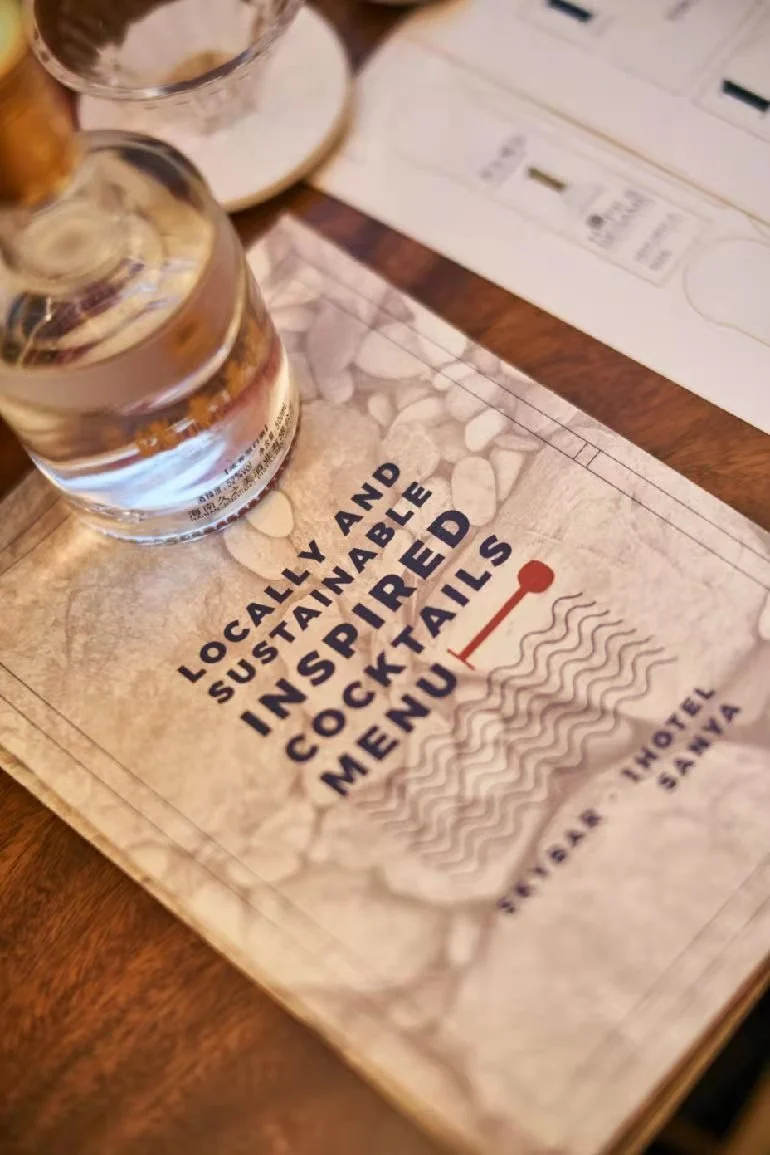Earth Day 2021 - How the F&B global’s commitment has increased
Every year on April 22, Earth Day marks the anniversary of the birth of the modern environmental movement started in 1970.
Since then, the commitment and dedication of both individuals and companies has risen, with more than 1 billion individuals mobilized for action every Earth Day.
Born in the US, the movement has crossed borders to more than 190 countries, and it seems that nowadays everyone wants to contribute in one way or another.
This year we decided to pay tribute to those in our industry who are the most committed to environmental issues, each in their own way to ensure we leave a better planet for future generations.
1. Journey’s End Vineyards – WWF Conservation Champion Status
After being recognized as Ethical Company of the Year Award in The Drinks Business Green Awards 2021 after a unanimous decision of the jury in their praise for one company’s work to tackle worsening poverty and hunger in South Africa, Journey’s End should also be remembered for their incredible effort in protecting and restoring the environment.
This has finally been recognized, as Journey’s End Vineyards, the boutique estate situated on the mountain slopes above Sir Lowry’s Pass Village in the Helderberg basin of Stellenbosch, has been awarded WWF (World Wide Fund for Nature) Conservation Champion Status, a prestigious accreditation bestowed upon environmental leaders in the Cape Winelands.
Conservation Champion farms are committed to regenerative farming practices, including conserving natural systems and biodiversity on their land and optimal water and energy efficiency.
The program, originally called the Biodiversity and Wine Initiative (BWI), was initiated in 2004 at a time when the wine industry was expanding rapidly into highly threatened habitats, spurring a partnership between the conservation sector and the wine industry as custodians of the land.
This partnership began recruiting like-minded wine farms throughout South Africa. Together, they helped set up environmental management plans and put systems in place which were audited through the Integrated Production of Wine (IPW) scheme, South Africa’s voluntary sustainable wine certification scheme.
By 2015, 90% of the South African wine industry was able to certify that their wine was environmentally friendly and responsible through the BWI and IPW partnership.
The WWF subsequently renamed and restructured the program to focus exclusively on working with and supporting the industry’s environmental leaders – WWF’s Conservation Champions.
Rollo Gabb, Managing Director of Journey’s End enthuses, “We have a deep respect for the environment at Journey’s End and are dedicated to regenerative farming practices, conserving previously unprotected natural systems, promoting biodiversity and the efficient use and management of water and energy.
We love the area’s wildlife, birdlife and nature and have set aside 22 hectares of land to conserve and re-introduce indigenous wildlife and plant life species.
We restore areas on the farm where vines have been previously uprooted, by planting more indigenous species.
New floating wetlands will increase aquatic biodiversity, improve water quality and create a habitat for water birds.”
“We plant lupins (a natural nitrogen fixer) and wheat between the rows of vines to prevent weeds (and thus the need for chemical spraying), prevent topsoil erosion and improve the soil’s health.
The introduction of Egyptian Geese (to control snail populations) and Spotted Eagle Owls (to control rodents) and the use of natural pesticides all play their part in ensuring that the environment is preserved and protected.
Bees are an essential part of the pollination of our vines.
There are 40 hives around the vineyards that house our little bee army which is so vital to the production of our grapes.
Owl boxes on the farm provide rest for our resident Eagle Owls.
We are also extremely vigilant and innovative when it comes to water conservation and supply to keep us self-sufficient and were the 2nd wine producer in South Africa to convert to solar energy in 2014.”
To know more about Journey’s End in China get in touch at info@nimbilityasia.com
2. Cooperativa Capel – Piscos made with sustainability at their heart
For Capel, the world’s leading Pisco producer, sustainability is not an option, it’s their mission!
Located on the outskirts of the Atacama Desert, the environmental conditions are harsh and challenging.
This is viticulture at its limits and such a wild, harsh yet beautiful, almost unworldly, awe-inspiring environment demands that sustainability is placed front of mind and nature’s balance preserved.
Capel do this by focusing on a number of key parameters:
Irrigation: water is the key for all farming activities, and indeed life itself! As such, water is the most valuable resource, particularly in a landscape, where drought is something that is present year after year.
Capel’s management of the scarce water resources, and how the irrigation of the vineyards has been designed, has created a closed loop circuit where there is not water waste during the production and every last drop is recycled and reused.
No Chemicals: on the bright side of being next to the driest desert on earth, is the absence of pests and diseases.
This allows Capel’s farmers to grow their grapes entirely free of any pesticides or harsh chemicals, avoiding any soil contamination which could spoil the precious groundwater resources and upset the natural world’s fragile balance.
Recycling: all dry goods used by Capel are from reusable sources, all the glass, caps, labels and shipping boxes come from recycled materials, as well as running their own recycling initiatives at downstream outlet level to reduce the waste generation patterns.
Clean Energy: a partnership with the natural gas provider Lipigas to develop a program of reusable energy and optimization of the pot stills has allow them to reduce their carbon print and CO2 by 99% since 2019, this reduction is the equivalent of 2,000 trucks CO2 emissions in one year!
This is in addition to the use of solar panels for all the energy consumption across production facilities, admin offices and farms.
Education: Since 2019 Capel and the Agro Development Institute (Indap) have an Agreement of the Productive Alliance.
Under that agreement all small Pisco grape growers in the Limarí and Choapa provinces of Chile will have assured access to technical expertise for sustainable irrigation and environmental practices.
For more information about Capel Group in APAC, please contact info@nimbilityasia.com
3. Adelaide Hills Distillery – Craft Spirits made with both love and respect for Australia’s unique environment
Exceptional small batch spirits producer Adelaide Hills Distillery was launched in 2014 with a major quest in mind: produce the best possible Spirits always with a signature Australian twist, while keeping a minimal impact on the environment.
Designed as a true partnership, all of their spirits are crafted with Nature in mind.
“Crafted for Better” is their statement and mantra, the epitome of everything they do. It reflects everything they believe in around quality hand-crafted spirits, sustainable production, the use of mindfully gathered Australian botanicals and the connection to local community.
It is something they firmly believe makes for a better, more enjoyable and sustainable world, and not just for a phenomenal liquid in the glass.
Sustainability is the buzz word right now, with growing environmental awareness and messages to minimize our impact on the earth dominating conversations globally.
When making considered choices about their production and operations, their decisions are determined by processes that will drive the best outcome for both producing the highest possible quality product, and the resultant impact this will have on the environment:
- Buildings have been placed to harness the natural elements of light and sun yet protect guest areas during cooler months, while 1,700 square metres of solar panels further support their goal of achieving self-sufficiency.
- A waste-water treatment plant used to harness two onsite bores was one of the largest and most important investments during development and planning.
There is no resource more valuable than water and this state-of-the-art system allows them to achieve a closed loop with every drop – from bore, through the production process, to use on the crops and orchards before the process starts again.
- Strict policies on reusables, dedicated programs for using spent grain from the brewery or leftover distillery botanicals and native gardens support this holistic approach to protecting the future of their site.
And this is just the beginning!
To find out more about Adelaide Hills Distillery in China, get in touch at info@nimbilityasia.com
4. DRiNK Magazine – Putting its voice and authority in support of sustainability initiatives from Brands and Trade all across APAC
At first, DRiNK Magazine was using their online platform to communicate about the Brands and Trade environmental initiatives in APAC.
But being the Trade Authority they are in the region, DRiNK Magazine knew they had to go one step further in promoting those ambitious efforts and celebrating sustainable practices in APAC bartending world.
By introducing their DRiNK Awards Sustainablity Award, they celebrate those who exemplify everything we should all be doing to better our industry to ensure a better future.
The Sustainability Award recognises a business, bar, person or activation that has gone out of its or their way to adopt and promote a sustainable culture.
As concerns grow for the wellbeing of our environment, mental health in the F&B industry and the effect of all businesses on their local communities, in DRiNK’s opinion (and ours!) sustainability should be standard – not just a trending afterthought.
Thus, the nominees and winners of this award are models for the future of our industry and the things we should all be striving to accomplish: environment preservation, employee welfare and social responsibility.
Below are a couple of those Key Trade Players worth mentioning…
5. The Cannery, Shanghai
Michael Chen, Beverage Director at The Cannery, a community minded destination for upscale cocktails and fresh seafood, has made it a key focus to upscale dedication to low-waste bar programs.
The strong connection both at The Cannery and its sister café Rye & Co (with its dedicated cocktail bar High on Rye), between bar and kitchen is a focus for their sustainable emphasis including overlapping where possible on ingredients, upcycling food waste and utilizing all unwanted bits from the kitchen wherever possible.
This mindful approach to waste and recycling goes a long way.
Michael shared a few thoughts in 2019 on the role of sustainability in the bar programs he leads with DRiNK Magazine: “The direction of our bar programs has changed quite drastically over the last years, with a focus on being more sustainable.
For me, this is a constant process – a change in the way of thinking when it comes to constructing drinks, and a real dedication to making small and regular changes to be more sustainable in our bars.
This came about as I was looking to innovate our programs and for a way to differentiate ourselves from others, and it evolved into so much more.
Along the way, we’ve learned a lot, but at the same time there’s so much left unexplored.
Our philosophy remains the same: provide good drinks in a great environment, with an uncompromising focus on delivering flavour – now with the added focus of reducing waste and leaving less of a carbon footprint.”
6. Hope & Sesame, Guangzhou
Hope & Sesame, which lays claim to Guangzhou’s first speak easy, Sanyou, the group’s new Baiiiu bar, and Charlie’s their buzzing bistro, work tirelessly to ensure they are as low waste as possible.
One of their key points of difference is their dedication to China-made and China-sourced ingredients and equipment, championing and supporting the local market in all that they do.
Very vocal about sustainability and always innovating in this regard, they encourage other businesses to be more sustainable in their own practices by adding sustainability clauses to their consulting contracts with suppliers.
This enables the reduction of waste from the very start of the process and gives other businesses the chance to step up, learn and implement better ways of working.
Co-founder Bastien Ciocca told DRiNK Magazine a bit about what sustainability really means to the group and their businesses back in 2019:
“The concept of sustainability to our group is not a foreign idea. It is not something born out of media attention or global trends – to us, it is just good business practice.
Just like providing top notch service and good accounting, it helps us run an efficient, productive, and creative business.
In Hope & Sesame’s cocktail menu we focus on only ingredients we grow in our urban garden, and only use produce that actually grows during each ‘micro’ season.
Not only does it limit the use of ingredients that need to travel long distances to get here, but by using homegrown produce, we can also inspire our bartenders to grow flavours they want to use; thus giving them more responsibility and ownership of their role as bartenders.
Lemons and limes are shared between our outlets Hope & Sesame and Charlie’s – the juices are used in Hope for cocktails, the husks in Charlie’s homemade limoncello.
Not only does this fully utilise the fruit, but it also encourages our two teams to communicate.
Likewise, kitchen waste from Charlie’s’ pasta bar goes into compost and is then used back in the urban garden, which fuels our cocktails.
That creates good kitchen habits and helps us be more socially responsible towards wastage.
We also ask the same consideration our suppliers – i.e. no plastic bags when delivering fruits and vegetables; with consulting partners, we set clauses in our contract that sustainability practices needs to be respected, for instance limiting one-time usage items and setting up practices for water conservation.
We have been challenging our team members to come up with creative ways of being sustainable during their daily operations: the leftover from malkwashed cocktail turns into a delicious welcome snacks, and excessive peels from fruits becomes fruity shrub.
Sustainable is also being socially responsible, and that became clear to us during the tough period last year.
We came to realise what is important to the core value of out business - to create true value & impact whilst doing good for our community.
In the Hope & Sesame’s cocktail menu of “Bar Hopeless”, we focused on utilising fair trade ingredients directly from farmers, without going through any middleman to ensure they are rewarded for their efforts.
We’ve also supported a local Guangzhou charity with our proceeds to financially support children that are sick and terminally ill.”







